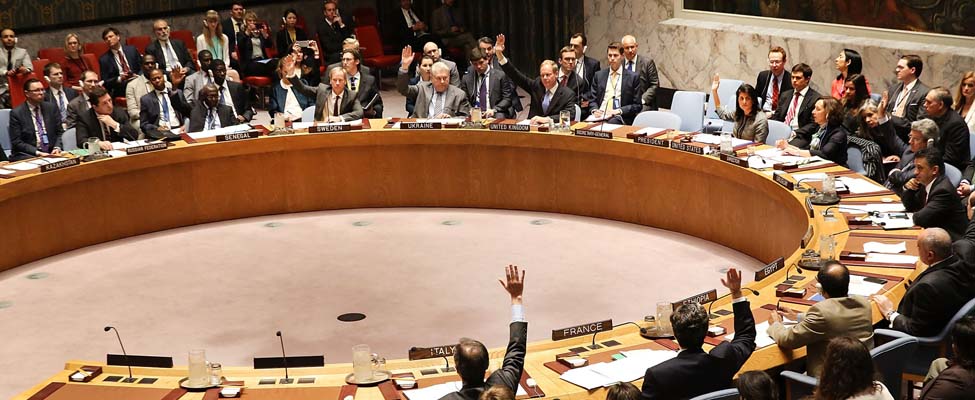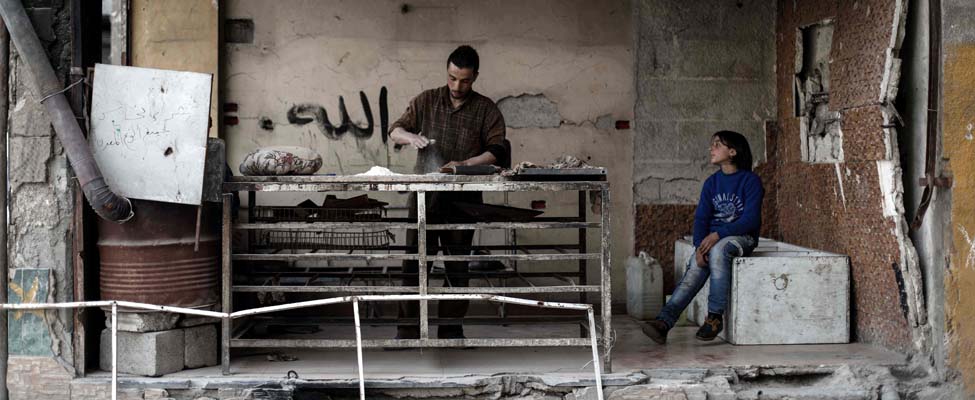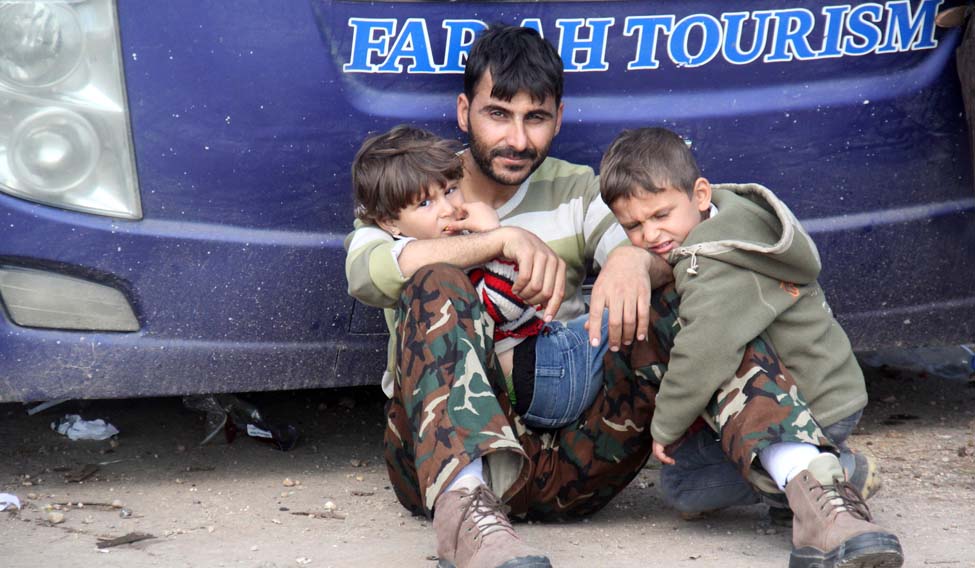Brazil, Russia, India, China and South Africa recently issued a joint BRICS statement condemning military action in Syria not authorised by the United Nations. The statement also calls for respect of international law, territorial integrity and sovereignty. The recent missile attack by the United States of America in Syria, in retaliation for the chemical attack in the town of Khan Sheikhoun in the rebel-held territory of Idlib Province, evoked strong criticism even within the Trump administration. The 59 Tomahawk cruise missiles targeted the Al Shayrat airfield in western Syria, where the alleged chemical weapons attack originated. The statement issued by Pentagon mentions that: The missile targeted aircraft, hardened aircraft shelters, petroleum and logistical storage, ammunition supply bunkers, air defence systems, and radars. As always, the U.S. took extraordinary measures to avoid civilian casualties and to comply with the Law of Armed Conflict. Every precaution was taken to execute this strike with minimal risk to personnel at the airfield. The strike was intended to deter the regime from using chemical weapons again.
A statement by President Trump mentioned that "it was in the vital national security interest of the United States to prevent and deter the spread and use of deadly chemical weapons" and that the resulting refugee crisis "threatened the United States and its allies". However, the primary reason behind the attack is clearly a military intervention to prevent further use of chemical weapons in Syria.
Was the missile attack legally justified? Kremlin strongly condemned the attack and alleged that it was “an aggression against a sovereign state in violation of international law”. Iraq alleged that “unilateral action is dangerous, destructive and violates principles of international law”.
At the same time, many of America's allies like Israel, Japan, Australia, and Turkey lauded the attack as timely. Some would argue that the attack was in self-defence, drawing an inference from President Trump’s statement that the attacks were for reasons of "national security". However, this argument would not hold up as ‘self-defence' or ‘collective self-defence’ under Article 51.
The history and evolution of military interventions
The concept of military intervention for the protection of civilians is not a new one. It can be traced back to early modern Europe, if not much earlier. The 19th century Egyptian invasion by Napoléon Bonaparte, claiming the protection of the indigenous Egyptians from the Ottoman Empire’s suzerainty is one example. The great powers of Europe intervening in the Ottoman provinces of Greece (1827) and Syria (1860-61) is another. The British intervened to abolish slave trade.
Many early philosophers like Cicero, Gentili, Grotius, and Pufendorf held supporting views of the state’s positive to assist and protect those beyond their borders. However, this concept is contrary to the principle of non-intervention, which emerged in the mid-nineteenth century and was further established through the covenant of the League of Nations, the Kellogg-Briand Pact, the United Nations(UN) Charter, and many UN General Assembly (GA) resolutions. During this period, humanitarian intervention was framed as an exception to the rule of non-intervention, rather than as a binding legal obligation.
Legality of military interventions
UN legal norms pertaining to military intervention and non-intervention
The UN Charter lays down clear legal norms regarding intervention and non-intervention. For example, Article 2(4) of UN Charter prohibits members from threat or use of force that would violate the territorial integrity or political independence of any state. The only exceptions to this are actions authorised by UN, especially by the Security Council (UNSC), under Chapter VII and the right of individual and collective self-defence outlined in Article 51. Substantiating this, General Assembly (GA) Resolution 2625 clarifies that no state or group of states has the right to intervene, for whatsoever reason, in the internal or external matters of another state and that such interventions were in violation of international law.
 Members of the United Nations (UN) Security Council hold a vote on a draft resolution demanding that the Syrian government cooperate with an investigation of the suspected chemical attack | AFP
Members of the United Nations (UN) Security Council hold a vote on a draft resolution demanding that the Syrian government cooperate with an investigation of the suspected chemical attack | AFP
However, Article 1 of the UN Charter declares that the purpose of UN is to maintain international peace and security, and, to that end, take effective collective measures for the removal of threats to peace. Article 24 of the Charter delegates the primary responsibility for the maintenance of international peace and security to the UNSC on the UN’s behalf. In Article 42, the Security Council is empowered to authorise UN members to engage in military intervention to restore international peace and security.
There is no disagreement regarding the UNSC’s power to authorise military interventions for international peace and security. Such military interventions have happened in countries like Somalia, Rwanda, Haiti and East Timor. However, the relevant question here is the legality of the intervention made by US.
Is there a Customary International Law on military intervention without UNSC authorisation?
One justification for military intervention without UNSC authorisation is that a Customary International Law (CIL) has developed in this regard. Proponents of this view may argue that some of these crimes, against which such interventions are made, may have achieved the status of peremptory norms. They observe that since the UN Charter was constituted, there have been numerous cases in which military force has been used to intervene in the affairs of the states, arguably for a humanitarian purpose, without UNSC approval. Further, even if a parallel, contradictory CIL were to develop, such a customary rule would not affect the treaty obligations of the UN members under Article 2(4) of the UN Charter. Hence it can be safely concluded that there are no clear CIL principles evolved in this regard which will legalise a military intervention without UNSC authorisation.
Legality of military intervention for protection of civilians through the concept of R2P
More recent discussions on military intervention without Security Council authorisation revolve around three incidents: the inaction of the international community during the Rwandan genocide (more than 8,00,000 people were massacred in 1994), the massacre of 8,000 Bosnians by Serb forces in 1995, the NATO's intervention in Kosovo in 1999. It is interesting to see that intervention and non-intervention have both been criticised across the board. The views—expressed by the secretary-general and the independent international commission on Kosovo—that the NATO military intervention was illegal but legitimate also created a dilemma.
 A Syrian man bakes a bread at his damaged bakery in the rebel-held town of Douma | AFP
A Syrian man bakes a bread at his damaged bakery in the rebel-held town of Douma | AFP
In 2001, the International Commission on Intervention and State Sovereignty (ICISS), an independent commission established by the Canadian government, developed the idea of a ‘responsibility to protect’ (R2P). In fact, ICISS was not the first to frame the concept of R2P. In 1991, the UN secretary-general called for an agreement on the collective obligation of states to bring relief and redress in human rights emergencies. Later in that decade, Francis Deng, a Sudanese diplomat and scholar, developed a principle which he termed ‘sovereignty as responsibility’, along similar lines. It postulated that the sovereign right of non-interference was conditional upon the performance of sovereign responsibilities of protecting the populace.
ICISS grounded its arguments in traditional and justified war criteria, including just cause, right intention, last resort, proportionality, reasonable prospects for success, and right authority. It also claimed that the "just war" concept in intervention translated to an obligation to intervene.
In 2004, the high level panel of experts commissioned by UN secretary-general took up the principle of R2P. However, the dilemma here would be that there is no provision in international law for the establishment of this international community. Hence this responsibility is not focused on any clear entity, and it is diluted.
Subsequently, at the UN World Summit in September 2005, member states unanimously endorsed the ‘responsibility to protect'. Paragraphs 138 and 139 of the Summit Outcome Document, adopted by the UN GA, shifted focus from armed foreign intervention of the older doctrine to a delineation of state's responsibility to prevent and respond to genocide, war crimes, ethnic cleansing, and crimes against humanity. Finally, if peaceful methods prove inadequate and "national authorities manifestly fail to protect their populace", there can be coercive action under Chapter VII. Perhaps to build an international consensus, it was much more restrained than the visions offered by the high level panel and the secretary-general. Moreover, the member states were not ready to accept the obligation part of R2P, wanting to take it on as a moral obligation rather than a legal one. They wanted wanted to take the responsibility on a case-to-case basis. It also limited its application only to the four specific crimes—genocide, war crimes, ethnic cleansing, and crimes against humanity.
The legal sanctity of R2P in international law is very weak, as they do not generate international legal obligations under Article 38 of the International Court of Justice. The Declaration of the South Summit in 2000 by the G77 countries rejected this ‘right’ of humanitarian intervention, as one that was not legally tenable. In a consent-based international legal system, resolutions of UNSC and GA will contribute the maximum to the determination and interpretation of international law. It may also contribute to the gradual development of CIL, which will take more actions from the states to reach that level. Hence, military intervention for the protection of civilians, evolved in the form of ‘responsibility to protect’ after the articulation of the independent commission in 2001 through 2011, including the 2005 UN world summit document, presently offers a very weak legal sanctity at the international level.
Conclusion
The evolution of legal sanctions for military interventions for humanitarian purposes are presently limited to actions authorised by the UNSC and only limited to the four crimes—genocide, crimes against humanity, ethnic cleansing, and war crimes. This is evidently possible only by Security Council authorisation through Chapter VII of the UN Charter. Unilateral intervention by a state or group of states in another state’s internal affairs—like the recent US missile attack on Syria without Security Council authorisation—will constitute a breach of international law, even if it is for legitimate humanitarian reasons. This would be so because of legally accepted non-intervention obligation of the states through provisions of the UN Charter. Moreover, as discussed above, there are no clear principles of CIL, which may legalise military intervention without Security Council authorisation. In a highly politicised Security Council, unilateral actions like the present one will remain illegal, but morally legitimate.
Prof Sanoj Rajan is an expert on international law. He is presently the Dean of School of Law, Ansal University, and an Affiliate Expert with Harvard Humanitarian Initiative, Harvard University, USA





